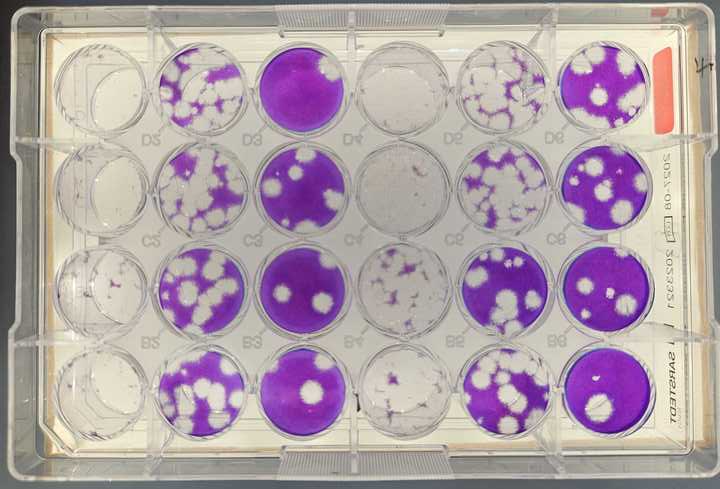
A type of drug that had been suggested as a potential COVID-19 treatment may not be clinically useful, a study led by Liverpool School of Tropical Medicine suggests.
JQ-1, which is one of a category of drugs known as small molecule inhibitors of bromodomain and extra-terminal proteins (iBETs), and are most commonly used in cancer treatment, had been shown by previous studies to display antiviral activity against SARS-CoV-2 – the virus that causes COVID-19.
However, the molecular mechanisms that explained this antiviral activity, and their susceptibility to being undone by viral replication, had not previously been studied.
A new study led by Christine Goffinet, Professor of Virology at LSTM, and published in PLOS Pathogens, confirmed that JQ-1 exerts antiviral activity against SARS-CoV-2 in cell culture when given as a prophylactic, but the antiviral response to infection lasts only two days until it is overwhelmed by the virus. When administered after infection, the compound does not generate any antiviral activity.
Professor Goffinet said: “Our study indicates that the administration of the drug JQ-1 as treatment for SARS-CoV-2 infection is ineffective, and as a prophylactic is of only short-term use. This indicates that SARS-CoV-2 can evolve mechanisms to subvert this type of molecule, and raises significant questions about the clinical suitability of iBETs in the prevention or treatment of COVID-19. Future work is required to understand how the virus antagonises JQ-1, and how we can render this class of drug more potent."
Study
In this study, the antiviral potential of JQ-1 was analysed in lung epithelial cell lines and primary lung cells that were infected in the laboratory with defined amounts of SARS-CoV-2 in the presence or absence of the drug.
Different variants of concerns were compared to the ancestral SARS-CoV-2, SARS-CoV and MERS-CoV. In addition to quantifying the inhibition of virus infection by the drug added either prior or post infection, it was investigated which cellular state the drug is inducing, using RNA sequencing and proteomics.
The paper ‘Pharmacological inhibition of bromodomain and extra-terminal proteins induces an NRF-2-mediated antiviral state that is subverted by SARS-CoV-2 infection’ has been published in PLOS Pathogens.